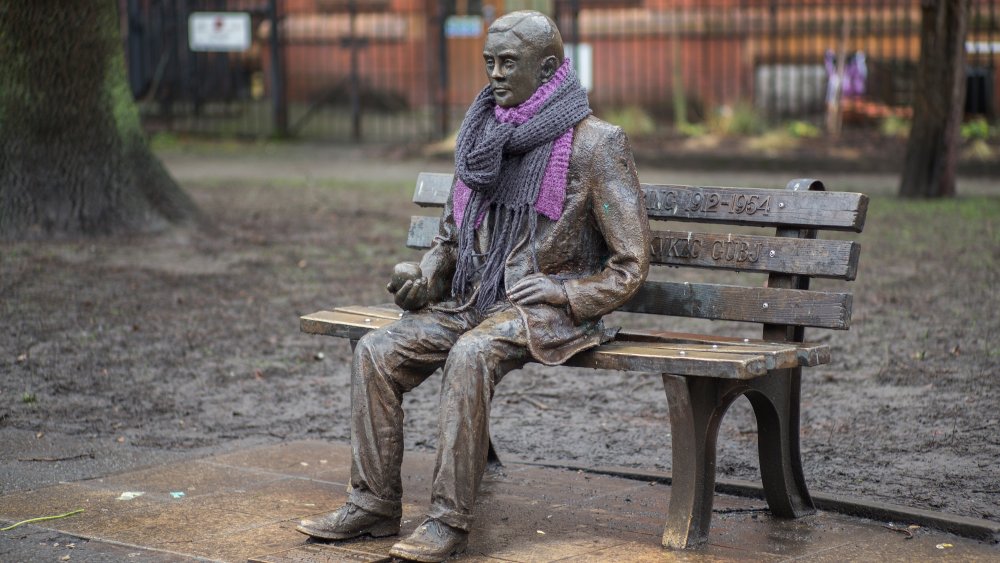The Mysterious Death Of Alan Turing
On June 8, 1954, the housekeeper of Alan Turing discovered a shock — Turing's body. As the Turing Centre describes, the official verdict was that Turing had died from self-administered suicide cyanide poisoning, with a half-eaten apple sitting on his bedside table presumably being the vehicle with which he had poisoned himself. The assumed motive for Turing's death, then, was depression due to the forced chemical castration he had endured: In 1950s Britain, homosexuality was still a crime, even for World War II heroes who helped save the country from Nazi Germany, and when Turing was found out in 1952, then, he had been forced to either face prison, or a probation that included the aforementioned hormonal treatment. Turing took the latter option.
However, some experts have questioned the suicide narrative, pointing out that his death occurred more than a year after the procedure ended, and that Peter Hilton, a friend of Turing, described Turing's attitude throughout as an "amused fortitude." Professor Jack Copeland of New Zealand's University of Canterbury leads the charge. He told the BBC that "we have in modern times been recreating the narrative of Turing's life, and we have recreated him as an unhappy young man who committed suicide. But the evidence is not there."
Deciphering the Turing enigma
Professor Copeland's theory for the perceived enigma is that Alan Turing died accidentally. Without excusing any of the abuse which Turing had suffered, Professor Copeland follows an explanation hinted at by Turing's mother, that Turing had been experimenting with cyanide, specifically electrolyzing solutions from it. The experiment was connected to a light socket, which had shocked Turing during one of his experiments. Such carelessness, Professor Copeland argues, could have led to Turing accidentally getting some cyanide on the apple, or even inhaling evaporated cyanide by mistake. However, due to the poor nature of the investigation, murder and/or assassination is also a possibility, one that has been raised by author Roger Bristow, according to War History Online.
However, yet more others, such as the production team behind the dramatized documentary Codebreaker, maintain that even with Professor Copeland's points in mind, suicide seems the most probable interpretation. Even the professor himself acknowledges that, "The exact circumstances of Turing's death will probably always be unclear."
If you or anyone you know is having suicidal thoughts, please call the National Suicide Prevention Lifeline at 1-800-273-TALK (8255).

